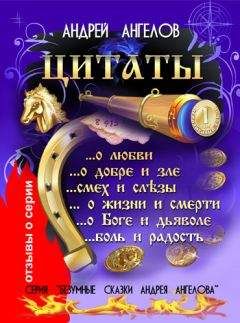Peake, Mervyn - 02 Gormenghast
The tangle of his thoughts and emotions - the confused groping for an outlet for his wayward spirit, his callow lust for revolt, left no room in him for those things that would once have quickened his pulse. He had found that to be alone was more intoxicating. He had changed.
And yet, in spite of the long years that had passed since he, Doctor Prunesquallor and Professor Bellgrove had played marbles in the small fort, he was still as able to delight in the most childish of amusements. He would often be found sitting by the moat, and launching by the hour small wooden boats of his own making. But more abstractedly than in the old days, as though for all his apparent concentration, as he carved with his penknife the tapering bows or the blunt stern of some monarch of the waves - his mind was really far away.
Yet he carved away at these small craft and he named them as he launched them upon their perilous missions to the isles of blood and spices. And he would visit the Doctor and watch him making those peculiar drawings which Irma had never cared for, those drawings of small spidery men, a hundred on a page, engaged now in battle, now in conclave, now in scenes of hunting, now in worship before some spidery god. And for the hour he would be very happy. And he would visit Fuchsia and they would talk and talk until their throats were sore... would talk about all there was in Gormenghast for they knew no other place - but neither to his sister nor to Bellgrove who would sometimes, when Irma was engaged elsewhere, shamble down to the moat's edge to launch a ship or two - neither to him, nor to the Doctor did Titus ever unburden himself of his secret fear, the fear that his life would become no more than a round of pre-ordained ritual. For there was no one, not even Fuchsia who, however much she might sympathize, could help him now. There was no one who would dare to encourage him in his longing to free himself of his yoke to escape and to discover what lay beyond the margins of his realm.
FIFTY-THREE
The unearthly lull that had descended upon Gormenghast had not failed to affect so imaginative and highly strung a nature as Fuchsia's. Steerpike who, although sensitive to atmosphere in a high degree, was less submerged, and moved as it were with his crafty head protruding above the weird water. He could see Fuchsia, as she walked in a transparent world, far below the surface. Acutely aware of this trance-like omnipresence, Steerpike, following the course of his nature, was at once concerned with how best he could use this drug to further his own ends, and it was not long before he had come to a decision.
He must woo the daughter of the House. He must woo her with all the guile and artistry in his power. He must break down her reserve with an approach both simple and candid, with an assumed gentleness, and a concentration upon those things which he could pretend they had in common: and with a charming yet manly deference to her rank. At the same time he would both give the impression of those fires within him that were undoubtedly there, if for the wrong reason, and by devious means, so engineer their assignations and coincidental meetings that she would often come upon him in hazardous situations, for he knew already how much she admired his bravery.
But at the same time he must keep his face hidden as much as possible. He had no illusions about its power to horrify. That she was impregnated with the heavy yet far away atmosphere of the place, was no reason for him to assume that she was impervious to the fearfulness of his ruined face. They would meet after dark, when with no visual distraction she could gradually realize that only in him could she find that complete companionship, that harmony of mind and spirit - that sense of confidence, of which she had been so starved. But she was starved for more than this. He knew her life had been loveless - and he knew of the warmth and vibrancy of her nature. But he had always waited. And now the time had come.
He laid his plans. He made his first advances in the dusky evenings. As Master of Ceremonies, it was not difficult for him to know what parts of the castle would be clear of possible intruders at varying times of the late evening.
Fuchsia, deeply affected by the unearthly atmosphere that had made of her ancient home a place that she could hardly believe in, was led by subtle degrees, through a period of weeks, to a state of mind where she felt it a natural thing to have her advice solicited, as to this point or that, and for Steerpike to tell her of what had happened to him during the day. His voice was quiet and even. His vocabulary, rich and flexible. She was attracted by his grip upon whatever subject they conversed about - it was so far beyond her own powers. Her admiration for his vitality of mind developed, in its turn, into an excited interest in the whole being, this Steerpike, this nimble, fearless confidant of their nocturnal meetings. He was unlike anyone else. He was wide awake and alive to his fingertips. Her old revulsion at the memory of his burned face and red hands became buried under the ever growing structure of this propinquity.
That she, the daughter of the Line, should see so much of an officer of the castle, for unofficial reasons, was, she knew, a crime against her station. But she had been so long a time alone. To be able to feel that she could interest anyone to the extent of their wanting to see her night after night was something so new to her that it was but a short way to the outskirts of that treacherous land whose paths she would so soon be treading.
But she did not look ahead. Unlike this new companion, this man of the dusk, whose every sentence, every thought, every action was ulterior, she lived in the moment of excitement, savouring the taste of an experience that was enough in itself. She had no instinct of self-preservation. She had no apprehension. For Steerpike had moved towards her with a gradual and circuitous cunning until the evening came when their hands met involuntarily in the darkness, and neither hand was withdrawn, and from that moment, it seemed to Steerpike that his road to power was clear before him.
And for a long time everything continued to develop in the way he had foreseen, the intimacy of their secret meetings leading them ever more deeply into, as Fuchsia thought, each other's confidence.
But, with the evil knowledge of the power that was now his, Steerpike, indulging himself in the anticipation of final conquest, made no rash attempt to seduce Fuchsia. He knew that with Fuchsia no longer a virgin, he would have her, if for no other reason than that of simple blackmail, in the palm of his hand. But he was not ready yet. There was a lot to be considered.
As for Fuchsia, it was all so new and tremendous to her that her emotions had enough on which to feed. She was happier than she had ever been in her life.
FIFTY-FOUR
The disappearance of the Earl, Sepulchrave, Titus' father, and of his sisters, the Twins, and of their terrible and secret ends; the death of Sourdust by burning, and of his son Barquentine by fire and water, what of all this mystery and violence in the eyes of the castle? They had spread themselves, these horrors, over a period of twelve or more years, and although the minds, active in their different ways, of the Countess, the Doctor, and Flay, had, from their different angles, made periodic efforts to discover in the tragedies some common ground, yet no proof of foul play had yet been found which could support their suspicions.
Flay alone knew the grizzly truth about the secret death of his master, Lord Sepulchrave, and of his enemy the gross Swelter whom he had killed. This knowledge he had never divulged.
But his own banishment had been the result of Steerpike's gesture of disloyalty to his mad master, when the skewbald man was a youth of seventeen or eighteen years, and this disloyalty had remained rooted in Flay's mind. But of the incarceration and death of the Twins he knew nothing, although, witless of its origins and significance, he had heard their terrible laughter as they died in the hollow halls.
He had strained his brain and memory, as had the Doctor and the Countess, to draw some significant conclusion from the common deaths by fire of the father and son - Sourdust and Barquentine - and from the fact that Steerpike had been the hero of both occasions. Try as they would they were unable to rationalize their suspicions.
And yet there were, over the course of the years, small concrete although disconnected reasons for apprehension. As yet they fitted into no pattern, but they were there, and they were not forgotten.
The Doctor had always been anxious to discover Steerpike's reason for leaving his service and establishing himself as confidant and retainer of the vacant Twins. His was no mind to find pleasure in such surroundings. His only reason must have been for social advancement or for some darker motive. The identical Twins had disappeared. Their note which Steerpike had found on their table had told of their intention to kill themselves. Prunesquallor had got hold of this note and compared its calligraphy with a letter Irma had once received from them. He compared them in mirrors - he devoted an entire evening to their scrutiny. It seemed that they were by the same hand, the formation of letters big and round and uncertain as a child's.
But the Doctor had known these retarded women for many years and he did not believe, for all the oddness of their thwarted natures, that they would ever take their own lives.
Nor did the Countess believe that they were capable of making an end to themselves. Their puerile ambition and vanity - and their only too obvious longing to assume, one day, the rôles in which they were always seeing themselves, the rôles of ladies, great and splendid, bedecked with jewels, precluded any such idea as suicide. But there was no proof either way.
The Doctor had told the Countess of Steerpike's delirious cry 'And the twins will make it five!' She had stared out of the window of her room.
'Five what?' she had said.
'Exactly,' said the Doctor. 'Five what?'
'Five enigmas,' she answered heavily, without a change of expression.
'And what are they, your ladyship? Do you mean five...?'
She interrupted him heavily. 'The Earl, my husband,' she said. 'Vanished. One. His sisters, vanished: two. Swelter, vanished: three. Sourdust and Barquentine, burned: five...'
'But the deaths of Sourdust and Barquentine were hardly enigmatic...'
'One wouldn't be. Two would,' said the Countess. 'And the youth at them both.'
'The youth?' queried the Doctor.
'Steerpike,' said the Countess.
'Ah,' said the Doctor, 'we have the same fears.'
'We have,' said the Countess. 'I am waiting.'
The Doctor thought of Fuchsia's poem:
How white and scarlet is that face!
Who knows in some unusual place
The coloured heroes are alight
With faces made of red and white.
'But your ladyship,' he said - she was still staring through the window. 'The words "And the Twins will make it five" suggest to me that their ladyships Cora and Clarice would make two of the group he had in his delirious mind. He was making a list of individuals, in his fever, I will stake my brightest penny.'
'And so...'
'And so, your ladyship, the deaths and disappearances would be six, not five.'
'Who knows?' said the Countess. 'It is too early. Give him rope. We have no proof. But by the black tap-root of the very castle, if my fear is founded, the towers themselves will sicken at his death: the oldest stones will spew.'
Her heavy face flushed. She lowered her hand into a wide pocket, and drawing forth some grain she extended her arm. A small mottled bird appeared out of nowhere and running along her outstretched arm, perched with its claws about her index finger and with a sideways movement began to peck from her palm.
FIFTY-FIVE
'But he can't help giving you your ritual for each day, can he?' said Fuchsia. 'And instructing you. It's not his fault, it's the law. Father had to do it when he was alive - and his father had to - and they've all had to. It isn't possible for him to do any different. He has to tell you what's in the books, however trying it is for you.'
'I hate him,' said Titus.
'Why? Why?' cried Fuchsia. 'What's the good of hating him because he's doing what he has to do? You don't expect that he can make an exception, do you, after thousands of years? I suppose you'd rather have Barquentine. Can't you see how bigoted you are? I think he does his work wonderfully.'
'I hate him!' said Titus.
'You're becoming a 'bore!' said Fuchsia, with heat. 'Can't you say anything except "I hate him"? What's wrong with him? Do you hold his appearance against him? Do you? If so, you're mean and damnable.'
She shook her thick black hair away from her eyes. Her chin trembled.
'Oh God! God Do you think I want to quarrel with you, Titus, my darling?
You know how I love you. But you're unfair. 'Unfair'. You know nothing about him.'
'I hate him,' said Titus. 'I hate the cheap and stinking guts of him.'
FIFTY-SIX
As the months passed the tensions increased. Titus and Steerpike were at daggers drawn, although Steerpike, the soul of bland discretion, showed nothing of his feelings, and gave no sign to Titus or the outside world of his loathing of this forward boy - the boy who unconsciously stood between him and the zenith of his ambition.
Titus, who ever since that day when, little more than a child, he had defied Steerpike in the classroom silence, and had fallen fainting from his desk, had held on grimly to the dangerous ascendancy he had gained by that curious and childish victory.
Every day the details of his after-school duties were read out to Titus in the Library, Steerpike flicking through the pages of cross-reference, and explaining the obscurer passages with clarity and precision. Up till now the Master of Ceremonies had kept rigidly to the letter of the Law. But now, in the all but invulnerable position of being the only one who had access to the tomes of reference and procedure, he was making a list of duties which he would insert among the ancient papers. He had been able to unearth some of the original paper, and it was only for him to forge the copper-plate writing, and the archaic spelling and invent a series of duties for Titus which would be both galling and, on occasion, sufficiently hazardous for there to be always the outside chance of the young Earl coming to grief. There were for instance stairways that were no longer safe - there were the rotten beams and crumbling masonry. Beyond this there would always be the possibility of deliberately weakening and undermining certain cat-walks that stretched along the upper walls of the castle, or in some way or another of making sure that in following out the forged procedures, Titus would sooner or later fall 'accidentally' to his death.




